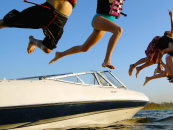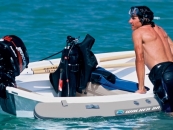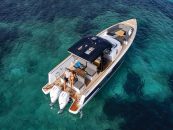 By Tom Mohun Solicitor – Master <45m NC
By Tom Mohun Solicitor – Master <45m NC
Queenslanders understand that if you drive a car under the influence of alcohol or other drugs, you will receive a hefty fine and you will be off the road for a period of time at best. At worst, you may be disqualified for years and you might even be imprisoned.
If you find yourself in the unfortunate and serious position of being charged with driving under the influence of alcohol or drugs on the water, boaters should be aware that the legal considerations and consequences are not the same as if you were driving a car.
So how do Queensland drink and drug driving laws apply in practice to boating?
The Road Use Management Act makes it unlawful for a person to drive, attempt to drive or be in charge of a motor vehicle, tram, train or a vessel’ under the influence of alcohol or substances (driving under the influence).
If charged, the Marine Safety Act also has something to say about a potential marine licence disqualification – even seasoned traffic lawyers may have pause explaining a recreational or commercial skipper’s responsibilities when it comes to driving under the influence on the water and the potential consequences.
STAYING UNDER THE ALCOHOL LIMIT: ARE YOU IN CHARGE?
For commercial skippers, the alcohol limit is always zero. The weekend recreational sailor is granted a little more leeway with a limit of 0.05. Simple enough.
But what if you find a well-protected anchorage, drop the ‘pick’ and want to put your feet up and have a cold one?
This is where it gets a bit trickier. The question is:
Who is in charge of your vessel?
In maritime law, anchoring your vessel is not the same as parking your car. The Collision Regulations (Colregs) continue to apply to a vessel at anchor, and that includes the duties to keep a proper look out and to take action to avoid collision. That could mean urgently heaving up your anchor, getting underway and getting out of the way, all at short notice. It follows that someone must always be ‘in charge’ of an anchored vessel, and that person must always be under 0.05.
In our view, it is better to err on the safe side and ensure that a suitably qualified person (whether recreational or commercial) is always under the applicable alcohol limit (zero for commercial vessel and 0.05 for recreational vessel).
You also need to bear in mind that if a police officer suspects that in the last 3 hours you, or your passenger, were in charge of a vessel, they can require you to blow in the bag. Whatever your reading is at that time is assumed to be your reading at the time that you were suspected of being in charge of a vessel. This means that if police can prove you or your passenger were behind the wheel, helm or tiller, or even in charge of an anchored vessel, the reading conducted up to 3 hours later may be enough to convict you.
The budding maritime lawyers amongst you might be thinking ‘but what about…?’ and of course each case turns on its owns facts. If police are investigating, questions like ‘Are you in charge?’ may be legally complex. It is important to get expert advice.
WHAT HAPPENS IF YOU PLEAD GUILTY?
Unlike driving, it is not inevitable that you will lose your recreational marine driver’s licence or commercial ticket. In fact, once you have pleaded guilty the magistrate must find that you were in control of a vessel that was, or was apparently about to be, used in navigation.
The eagle-eyed amongst you will notice that the question above no longer appears to simply be ‘are you in charge?’ But that is a question for another article.
In any event, if satisfied, the magistrate may disqualify your licence ‘if it is in the interest of marine safety’. Without descending too far into the weeds – it is up to the magistrate whether to take your marine licence or not, and it is up to you or your lawyer to argue why your licence should not be suspended or cancelled.
Lastly, if you are disqualified from holding a marine licence and you need it for work, all is not lost, as you or your lawyer can apply for a restricted ‘work’ marine licence under certain conditions.
WHY SHOULD I LOSE MY CAR LICENCE FOR SOMETHING THAT HAPPENED ON THE WATER?
Great question, you shouldn’t, but we have seen it happen. If you have had your motor vehicle licence cancelled due to a breath test whilst in charge of a vessel, call us, because it is likely someone has made a mistake in the process.
Police and Courts deal with many cases everyday. Most drink or drug driving offences before the Magistrates Court are road offences. As with all things Maritime and the law, the rules are a bit different at sea. It is possible that your driver’s licence may have been cancelled based on a mistake by police or the prosecutor. This is why it is important to have maritime law representation to assist the Court with this specialised area.
SO WHAT DO WE DO WITH THE DRUNKEN SAILOR?
If you’re heading out on the water, it is always best to err on the side of caution. Plan ahead, assign a designated skipper who will stay sober, keep a proper look out, keep out of the way of the drunken sailors, and make sure everyone comes home safely. The sea is perilous enough without alcohol, so it is always important to keep your wits about you, drink in moderation, and for the skipper to be as sober as a judge.
This article is no substitute for tailored legal advice. Remember, if you are asked to submit to testing by the police, be polite, comply, provide your licence, do not answer any questions other than confirming your name and address, and call your friendly maritime lawyer at Pacific Maritime Lawyers – we will be happy to assist.
Capt. John Kavanagh (Principal Lawyer – Master Mariner)
Ph: 0481 170 373 john@pacificmaritimelawyers.com.au
Published in print January-March 2024


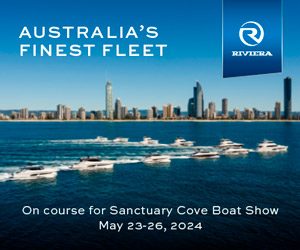






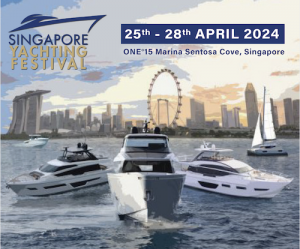










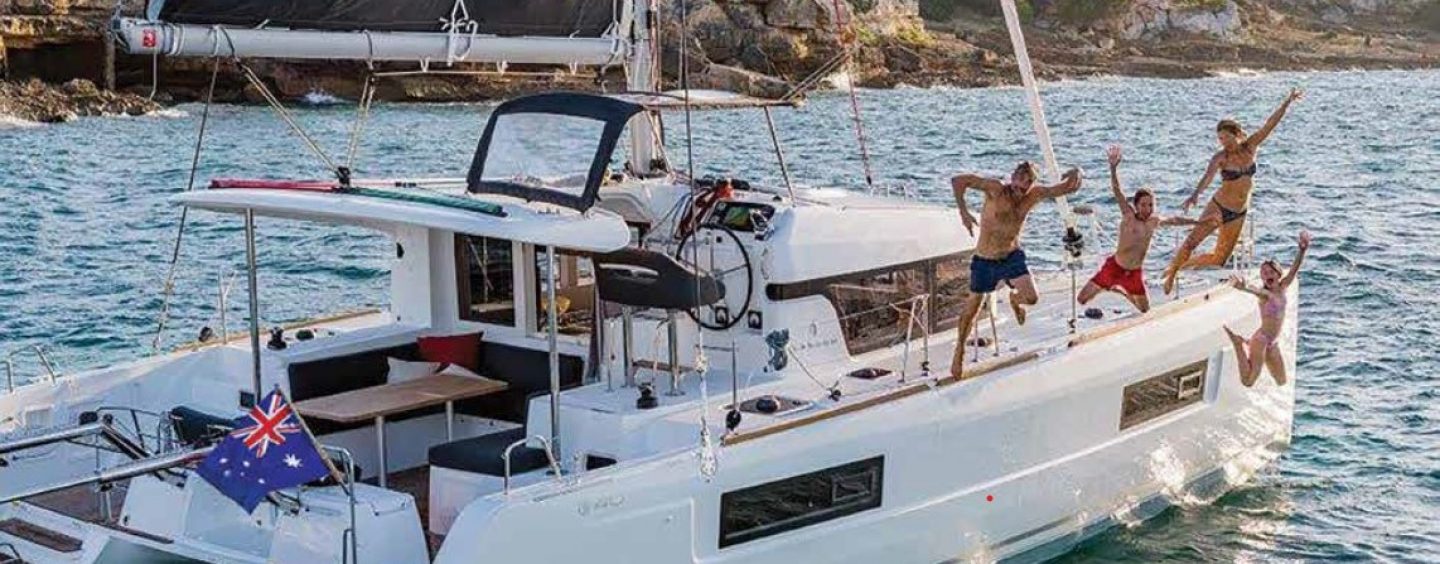
 Fountain Pajot Yachts
Fountain Pajot Yachts


